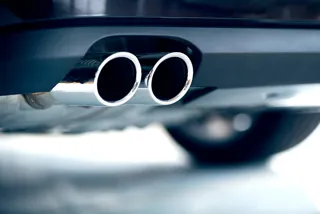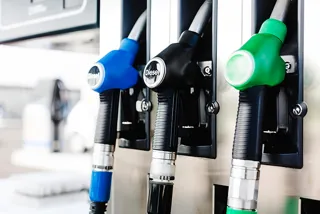Harvey Perkins, employment tax specialist at Gunnercooke Consulting
Rapid transition to electric cars is inevitable and welcome. Just 10 years from now traffic will look, smell and sound very different; 13 weeks of lockdown have given us an idea of what that might feel like.
As I’m fond of saying, you’ll pass a petrol station and think I haven’t seen one of those in ages.
There’s something here for everyone, – environmentalists will be delighted by the fall in emissions; ‘petrol heads’ enthused by the way these cars look and drive, fleet managers pleased with lower running costs.
It remains to be seen whether mileages will fall post Covid-19, as many are suggesting. While I see myself travelling less, I also think it’s likely I will use public transport less, at least until there is a vaccine. So, car use could increase.
Proponents of EVs will argue that range is not a limitation, but, intuitively, an EV feels more suited to lower mileage so may be better suited to the ‘new normal’?
There are many challenges to overcome, however, and the situation is not helped by a tax system that is arguably out of sync with the options available, right here and right now.
For full electric vehicles, it doesn’t get much better than no company car tax at all, and 100% first year allowances. However, for traditional ICE cars, the latest in a series of hikes in company car tax, under WLTP, means that rates are now at, or close to, maximum for almost all sensible options.
The tax charge on a top-of-the-line diesel Škoda Superb is now the same as for a Ford Mustang V8.
Overall, 38,000 electric cars were registered in 2019 (1.6% of the market) compared with around 800,000 company cars in the UK and 33 million in total.
I’d argue that supply is unlikely to significantly improve due to shortages in battery materials (as we await better technology, that will surely come). So, in our opinion, queues are likely to form for the cars we have available.
The majority of company car drivers who won’t, therefore, be able to have an electric car, will be forced to pay tax two or three times greater than is fair, or switch to cash. Either way, the Government will lose control over emissions for most.
I think plug-in hybrid vehicles (PHEVs) have a role to play, given they cost less and have smaller batteries. I appreciate the concerns about whether people plug them in, but, surely, it’s a relatively simple technical problem to force all-electric running in ULEZs.
But the future for PHEVs is foggy, given the Government’s consultation on banning the sale of new models from 2035 or earlier and the effect that will have on OEM investment.
While we totally support the tax break afforded BEV and PHEV, we’d argue that lower company car tax rates for medium emission cars are essential. Otherwise, the risk is that the majority of drivers, denied the choice of an electric car, will take something with much higher CO2 emissions.



















Login to comment
Comments
No comments have been made yet.